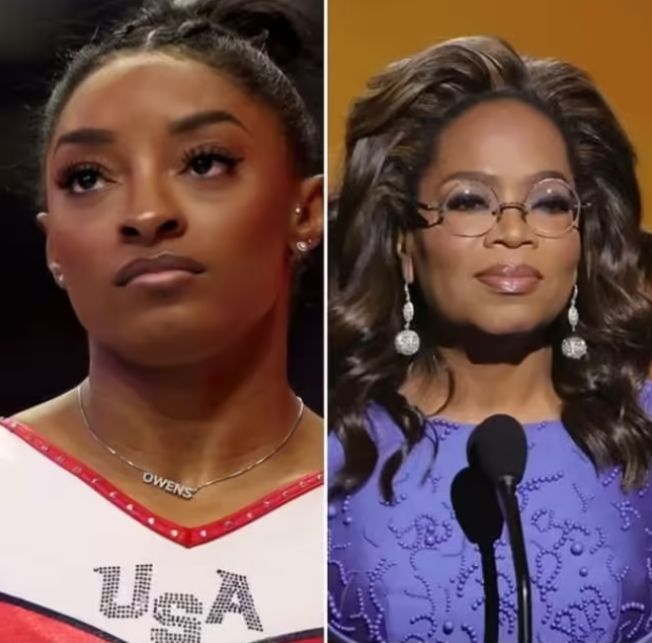Oprah Winfrey has been prohibited from making comments and speaking on social media following her severe criticism of Simone Biles during last week’s broadcast, in which she accused the gymnast of thoughtless actions.

In an unprecedented move, Oprah Winfrey has been prohibited from making social media comments for three months due to critical remarks she made about Simone Biles. Recently on her show, Winfrey expressed strong disapproval of Biles’ choice at the Olympics to step back and allow others to take part in significant events. This led to widespread backlash from fans of Biles as well as others who felt that Winfrey’s criticism was unduly harsh towards the athlete.
Regarding this column, public reaction centered on the observation that Winfrey’s criticism failed to adequately consider serious mental health pressures in professional sports. Renowned gymnast Simone Biles, often regarded as one of the greatest athletes ever, withdrew from several Olympic events citing mental health concerns—a move that sparked worldwide discussions. While numerous individuals praised Biles for her bravery in prioritizing her physical and mental well-being by stepping back, Winfrey’s remarks only intensified the controversy over how athletes’ mental health issues should be addressed publicly.
Social media erupted with responses, predominantly criticizing Winfrey for her remarks. Supporters of Biles and mental health advocates voiced their dismay at the media mogul, emphasizing that public figures like her bear a responsibility to promote constructive and respectful conversations, particularly on delicate issues such as mental health. The ban served as a reminder to influencers about their significant impact and the necessity of exercising responsibility on online platforms where millions are swayed by their statements.
It also reignited debate over free speech and its potential limitations, especially concerning celebrities. While some argue that Winfrey infringes on her own right to free speech by banning these individuals, others contend that she must take greater responsibility for the impact her words could have on people and their issues.
The ban serves as a timely reminder of the challenges in creating civil processes for debates within mediated contexts, particularly when these discussions impact people’s lives directly. The general public—comprising more than just those identified with the politically correct left—is calling for less outright aggression in commentaries, especially from individuals who possess significant influence.
